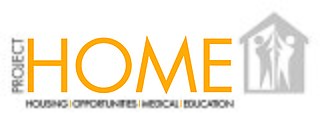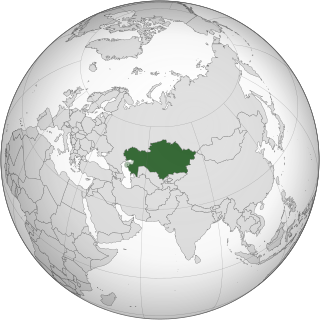Related Research Articles

Squatting is the action of occupying an abandoned or unoccupied area of land or a building, usually residential, that the squatter does not own, rent or otherwise have lawful permission to use. The United Nations estimated in 2003 that there were one billion slum residents and squatters globally. Squatting occurs worldwide and tends to occur when people find empty buildings or land to occupy for housing. A variation is Street Squatting which is the action of occupying public areas without lawful permission, such as outdoor parks or streets. It has a long history, broken down by country below.

Affordable housing is housing which is deemed affordable to those with a household income at or below the median as rated by the national government or a local government by a recognized housing affordability index. Most of the literature on affordable housing refers to mortgages and a number of forms that exist along a continuum – from emergency homeless shelters, to transitional housing, to non-market rental, to formal and informal rental, indigenous housing, and ending with affordable home ownership.

The Dublin Housing Action Committee (DHAC) was a 1960s protest group formed in response to housing shortages in Dublin, Ireland's capital city. It quickly moved to direct action and successfully squatted buildings to oppose redevelopment plans.

Public housing in Australia is one part of social housing and the other is community housing. Public housing is provided by departments of state governments. Australian public housing operates within the framework of the Commonwealth-State Housing Agreement, by which funding for public and community housing is provided by both federal and state governments. According to the 2006 census, Australia's public housing stock consisted of some 304,000 dwellings out of a total housing stock of more than 7.1 million dwellings, or 4.2% of all housing stock.
Take Back the Land is an American organization based in Miami, Florida, devoted to blocking evictions, and rehousing homeless people in foreclosed houses. Take Back the Land was formed in October 2006 to build the Umoja Village shantytown on a plot of unoccupied land to protest gentrification and a lack of low-income housing in Miami. The group began opening houses in October 2007 and moved six homeless families into vacant homes in 2008. By April 2009, the group had moved 20 families into foreclosed houses. As of November 2008, the group had ten volunteers. Take Back the Land volunteers break into the houses, clean, paint, and make repairs, change the locks, and help move the homeless families in. They provide supplies and furniture and help residents turn on electricity and water. Though the occupations are of contested legality, as of December 2008 local police officers were not intervening, judging it to be the responsibility of house owners to protect their property or request assistance.
Picture the Homeless (PTH) is an American homeless person–led rights organization founded in 1999 by Lewis Haggins and Anthony Williams. It focuses on human rights, housing, police violence and other social justice issues. It was housed originally in Judson Memorial Church, which still hosts its Longest Night of the Year memorial event, and was located for a time in El Barrio and 2427 Morris Avenue in the Bronx. It is currently based at 104B E 126th Street in Manhattan.

Project HOME is a nationally recognized 501(c)(3) non-profit organization that provides housing, opportunities for employment, medical care and education to homeless and low-income persons in Philadelphia, Pennsylvania.

In England and Wales, squatting—taking possession of land or an empty house the squatter does not own—occurs for a variety of reasons which include needing a home, protest, poverty, and recreation. Many squats are residential; some are also opened as social centres. Land may be occupied by New Age travellers or treesitters.
Historically, squatting occurred in the United States during the California Gold Rush and when colonial European settlers established land rights. There was squatting during the Great Depression in Hoovervilles and also during World War II. Shanty towns returned to the US after the Great Recession (2007–2009) and in the 2010s, there were increasing numbers of people occupying foreclosed homes using fraudulent documents. In some cases, a squatter may be able to obtain ownership of property through adverse possession.

Occupy Homes or Occupy Our Homes is part of the Occupy movement which attempts to prevent the foreclosure of people's homes. Protesters delay foreclosures by camping out on the foreclosed property. They also stage protests at the banks responsible for the ongoing foreclosure crisis, sometimes blocking their entrances. It has been compared to the direct action taken by people to prevent home foreclosures during the Great Depression in the United States.
The National Union of the Homeless (NUH) is a national union of local activist organizations that fight for housing rights and economic justice in the United States. The organization was active between 1985 and 1993 and was reestablished in 2020. At its height the National Union of the Homeless had over 20 local unions and 15,000 members.

The San Francisco Bay Area comprises nine northern California counties and contains four of the ten most expensive counties in the United States. Strong economic growth has created hundreds of thousands of new jobs, but coupled with severe restrictions on building new housing units, it has resulted in an extreme housing shortage which has driven rents to extremely high levels. The Sacramento Bee notes that large cities like San Francisco and Los Angeles both attribute their recent increases in homeless people to the housing shortage, with the result that homelessness in California overall has increased by 15% from 2015 to 2017. In September 2019, the Council of Economic Advisers released a report in which they stated that deregulation of the housing markets would reduce homelessness in some of the most constrained markets by estimates of 54% in San Francisco, 40 percent in Los Angeles, and 38 percent in San Diego, because rents would fall by 55 percent, 41 percent, and 39 percent respectively. In San Francisco, a minimum wage worker would have to work approximately 4.7 full-time jobs to be able to spend less than 30% of their income on renting a two-bedroom apartment.

The United States Department of Housing and Urban Development estimated that more than 171,500 people were homeless in California in January 2022. This represents 30% of the homeless population of the United States even though California has slightly less than 12% of the country's total population, and is the highest per capita rate in the nation, with 0.44% of residents being homeless. More than two-thirds of homeless people in California are unsheltered, which is the highest percentage of any state in the United States. Half of the unsheltered homeless people in the United States live in California: about 115,500 people, which is nine times as many as the state with the second highest total. Even those who are sheltered are so insecurely, with 90% of homeless adults in California reporting that they spent at least one night unsheltered in the past six months.
Squatters' Action for Secure Homes (SQUASH) is an activist group formed first in the 1990s in the United Kingdom to represent the interests of squatters and to fight the proposed criminalisation of squatting. It then reformed in 2011, when there were again parliamentary discussions about making squatting illegal. After squatting was (partially) criminalised in 2012, the group continues to monitor arrests and convictions.

Squatting in Australia usually refers to a person who is not the owner, taking possession of land or an empty house. In 19th century Australian history, a squatter was a settler who occupied a large tract of Aboriginal land in order to graze livestock. At first this was done illegally, later under licence from the Crown.

Squatting in the Republic of Ireland is the occupation of unused land or derelict buildings without the permission of the owner. In the 1960s, the Dublin Housing Action Committee highlighted the housing crisis by squatting buildings. From the 1990s onwards there have been occasional political squats in Cork and Dublin such as Grangegorman, the Barricade Inn, the Bolt Hostel, Connolly Barracks, That Social Centre and James Connolly House.

Housing is a vital economic sector in the United States, contributing to 15% of the GDP. The majority of Americans (64%) own their own homes, a rate that is less than the home ownership rates other large countries such as China (90%), Russia (89%), Mexico (80%), or Brazil (73%).

Squatting in Kazakhstan is the occupation of unused land or derelict buildings without the permission of the owner. Under the 1977 Constitution of the Soviet Union, housing was guaranteed for every citizen and after Kazakhstan became a republic, a new housing code was established in 1992. From the 1980s onwards, migration brought many people to Almaty, many of whom live in shanty towns. When the authorities attempted to evict the Shanyrak informal settlement in the mid-2000s it resulted in a riot and one person died. Poet Aron Atabek, who was chairman of Shanyrak's Land and Dwelling Committee and was jailed for 18 years. In the 1990s, the Alma-Ata Union of the Homeless recommended to squatters that they should occupy unused land, summer homes or derelict buildings. Most of the Shanyrak squatters remained in place and new program was established called Affordable Housing 2020, which suffered from corruption.

Urban areas in the Philippines such as Metro Manila, Metro Cebu, and Metro Davao have large informal settlements. The Philippine Statistics Authority defines a squatter, or alternatively "informal dwellers", as "One who settles on the land of another without title or right or without the owner's consent whether in urban or rural areas". Squatting is criminalized by the Urban Development and Housing Act of 1992, also known as the Lina Law. There have been various attempts to regularize squatter settlements, such as the Zonal Improvement Program and the Community Mortgage Program. In 2018, the Philippine Statistics Authority estimated that out of the country's population of about 106 million, 4.5 million were homeless.
Moms 4 Housing is a housing activist group in Oakland, California. It was formed and received national attention after three formerly homeless Black women moved their families into a vacant three-bedroom house as squatters without permission from the owner, a real estate redevelopment company. The publicity of their occupation highlighted issues of homelessness, affordable housing, gentrification, and human rights. In January 2020, after resisting a judge's order to leave the residence, "the moms" were forcibly but peaceably arrested and removed by a heavily armed sheriff's department. A few days later, the governor and the mayor brokered a deal with Moms 4 Housing for a local community land trust to purchase what was came to be called the "Moms' House" from the owner. After refurbishing the embattled house, the group began to use it as a transitional home for homeless mothers. The actions of Moms 4 Housing inspired California lawmakers to make changes to housing laws statewide.
References
- ↑ Temple, James (2010-04-05). "Housing protest leads to takeover of duplex". SFGate. Archived from the original on 2020-11-09. Retrieved 2020-09-27.
- 1 2 3 4 5 Corr, Anders. No Trespassing! Cambridge, MA: South End Press, 1999. pp. 17–18, 22–24.
- 1 2 Novella Carpenter (January 27, 2009). "A Tale of Two Squatters". San Francisco Chronicle. Archived from the original on June 20, 2012. Retrieved November 10, 2020.
- 1 2 Steinberg, Michael (November 1, 1994). "Homes Not Jails". The Progressive . Archived from the original on August 2, 2017.